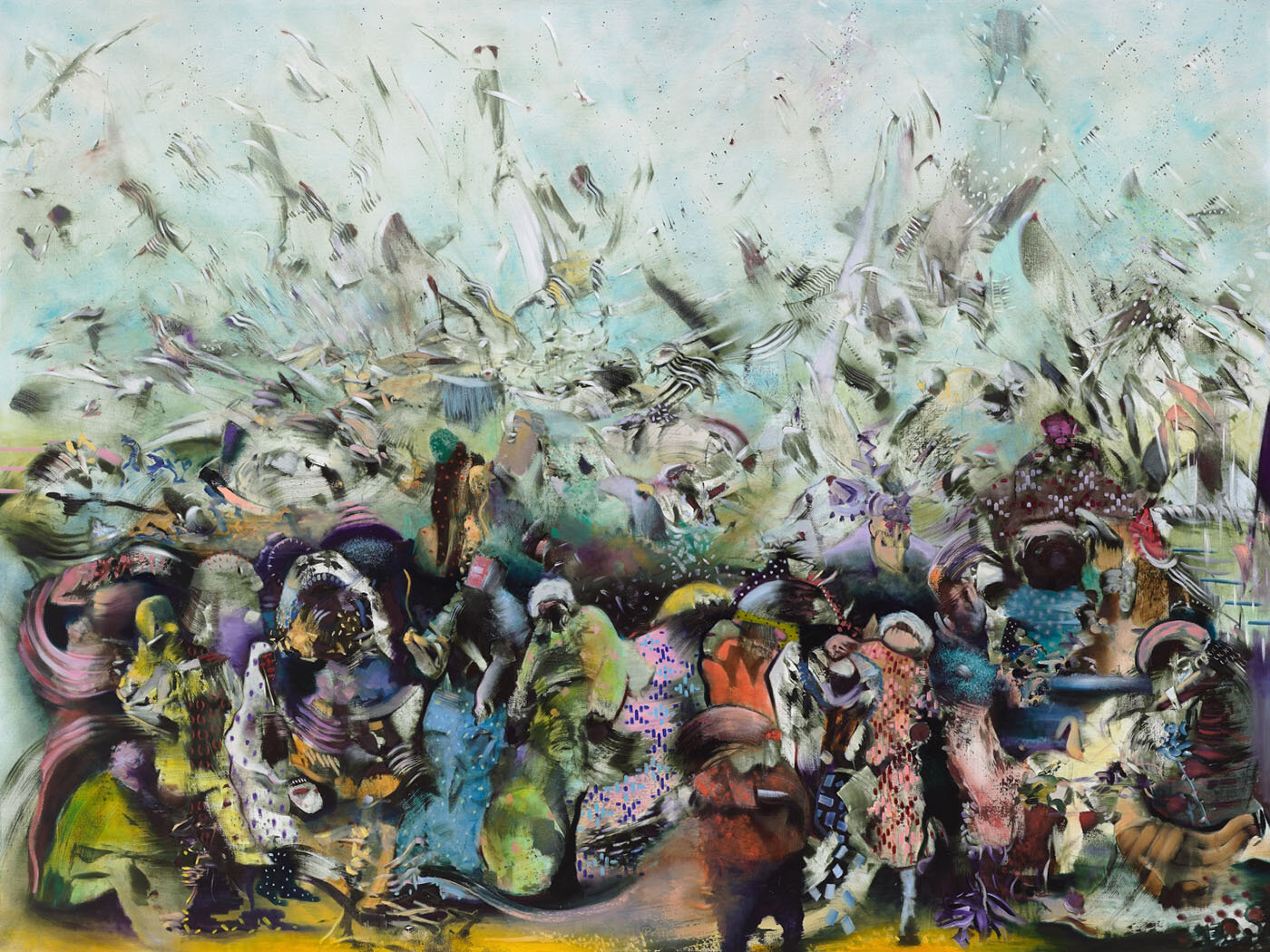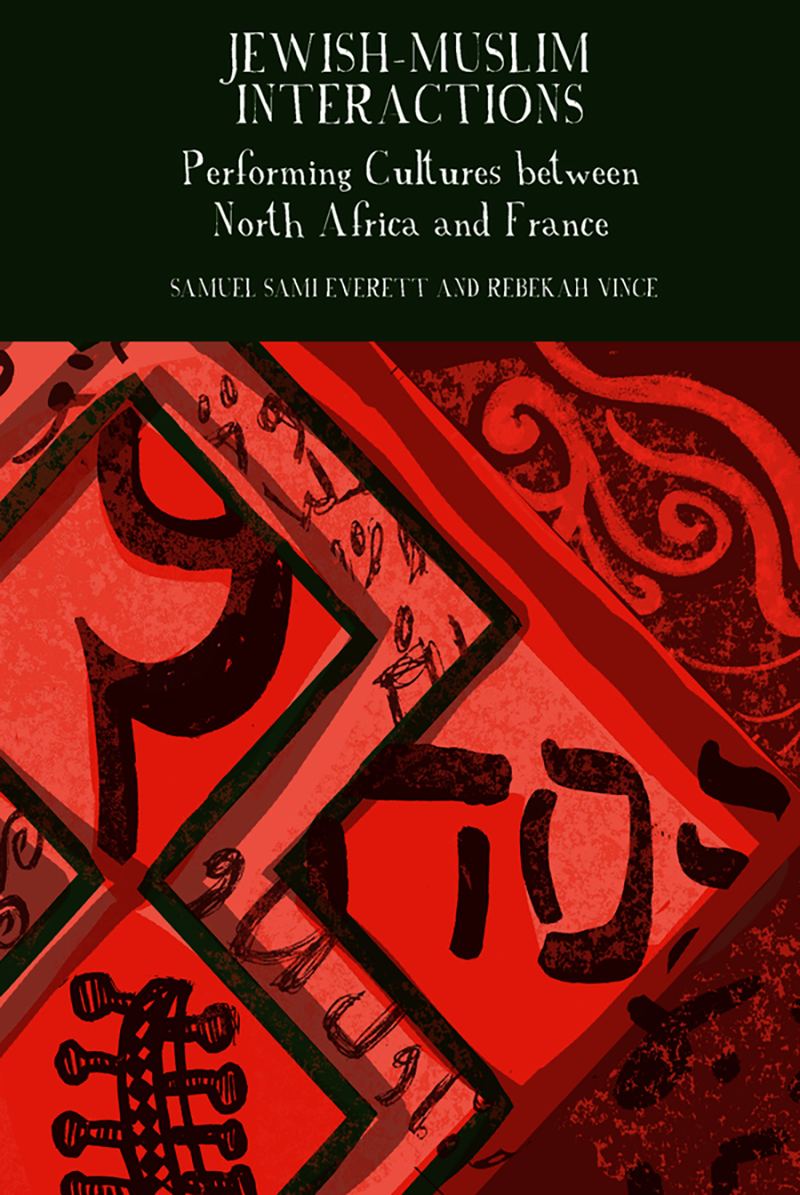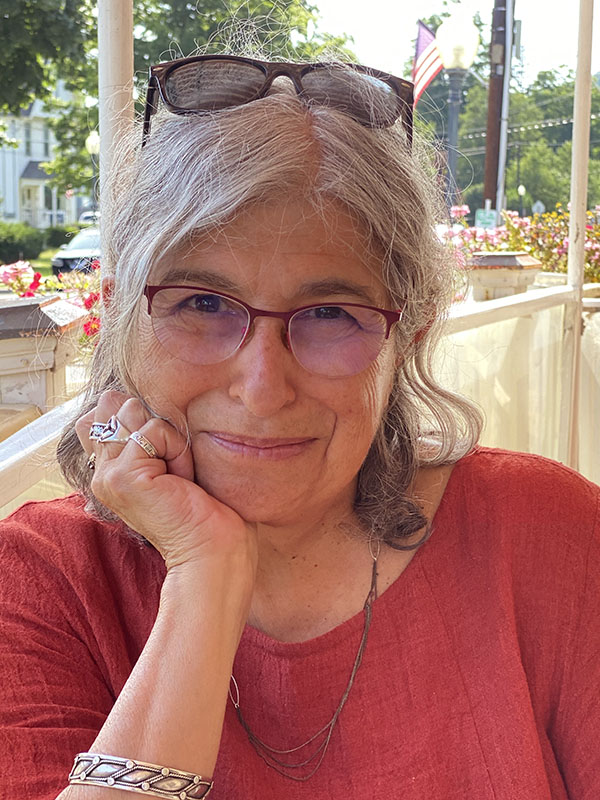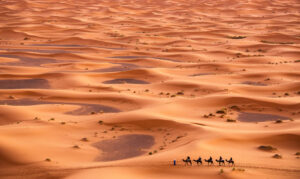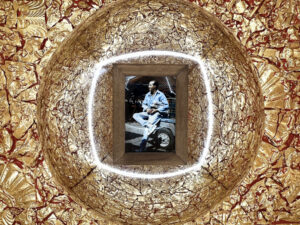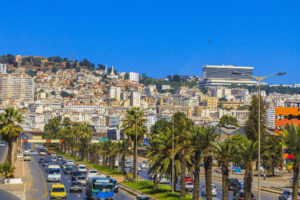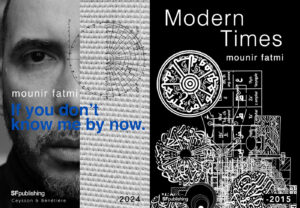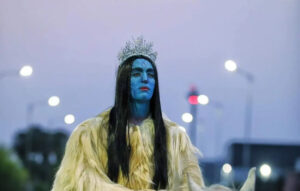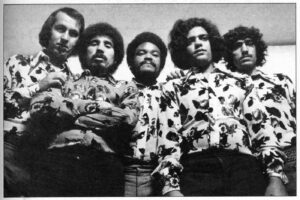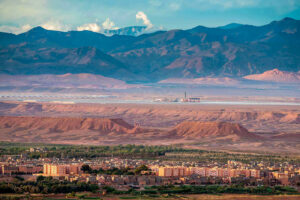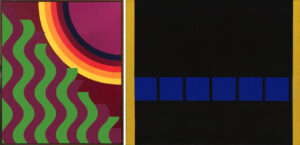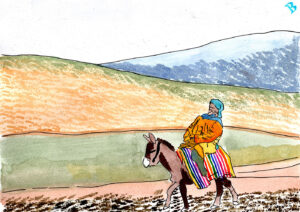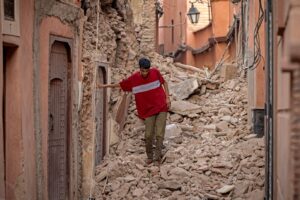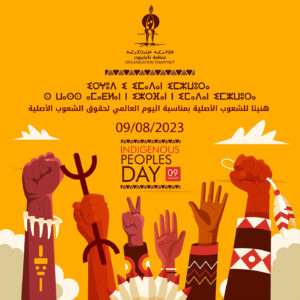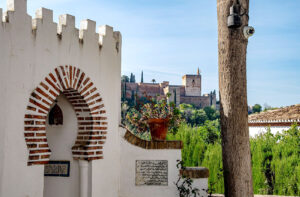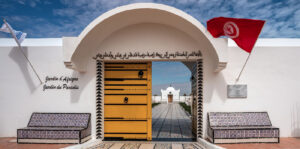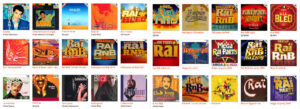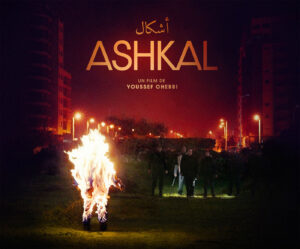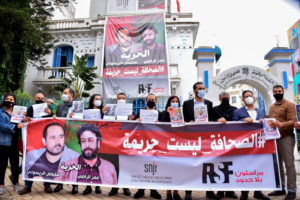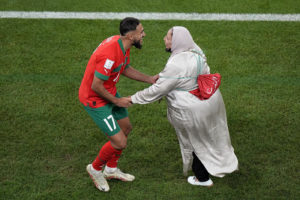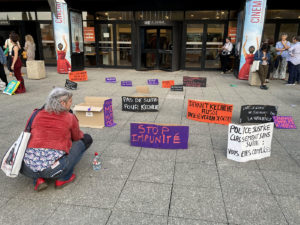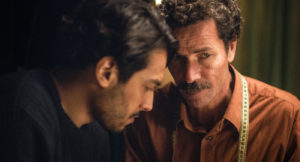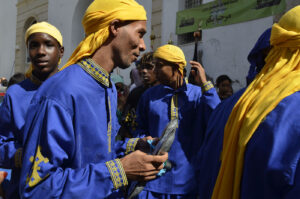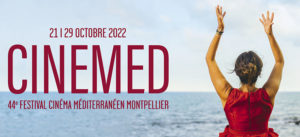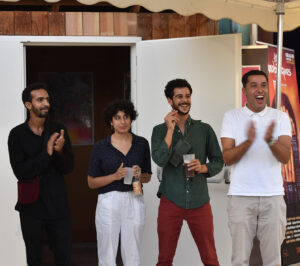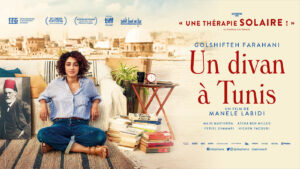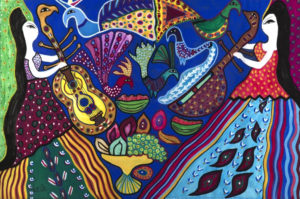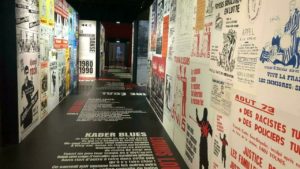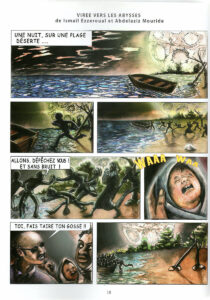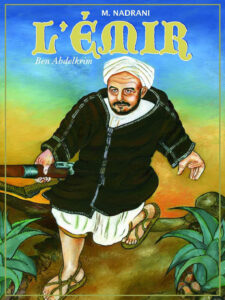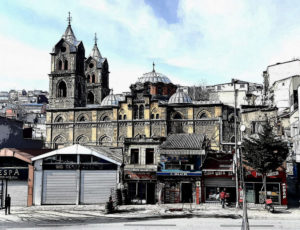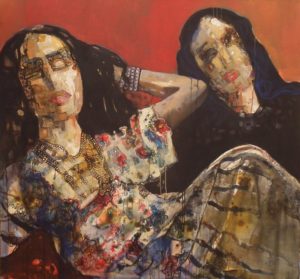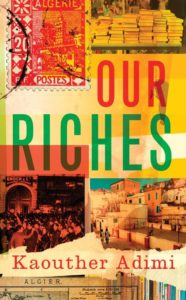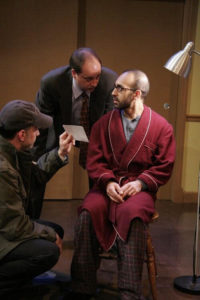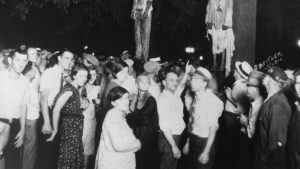Jewish-Muslim Interactions: Performing Cultures between North Africa and France
edited by Samuel Sami Everett and Rebekah Vince
Liverpool University Press (Nov 2020)
ISBN 9781789621334
Togo Mizrahi and the Making of Egyptian Cinema by Deborah Starr
University of California Press (Sept 2020)
ISBN 9780520366206
By Joyce Zonana
Throughout my childhood in our Egyptian-Jewish immigrant household in Brooklyn, I was regularly disheartened by the sight of my grandmother Rose, slumped on our living room sofa, weeping loudly as she played and replayed scratched LPs of Farid al-Atrash and Mohammed Abdel Wahab. La musique arabe, “Arabic music” as we called it, evoked for me our family’s broken past, the never-to-be-retrieved glory days of their lives in Egypt before the 1952 Free Officers’ Revolt. In my hunger to be American, I wanted nothing to do either with that past or with my shattered, grieving grandmother, who spoke mostly Arabic and whose only pleasure seemed to be retelling stories about Goha, the ubiquitous wise fool of North African and Asian folklore.
But just the other day, I happened on Safinez Bousbia’s stunning 2011 film, El Gusto, showcasing Muslim and Jewish Algerian chaâbi musicians reunited after fifty years of separation (most of the country’s 140,000 Jews, denied Algerian citizenship in 1963 after independence, had left for France, although under French colonialism, Jews were granted French citizenship by the Crémieux Decree of 1870, and Muslims were not). Watching the film, I was swept away by the music, ecstatically dancing and recalling my grandmother with a new sense of compassion. The sounds were so familiar, so deep, so infectious and joyful — chaâbi, the music of the North African “folk,” an amalgam of Andalusian and Amazigh traditions, along with strains of Islamic and Jewish chants. The film’s closeups of those elderly yet still vital Jewish and Muslim men calling each other “brother” and unabashedly embracing, brought tears to my eyes.
I’d been led to El Gusto — how had I missed it all this time? — by my reading of Samuel Sami Everett and Rebekah Vince’s new edited collection, Jewish-Muslim Interactions: Performing Cultures between North Africa and France, a wide-ranging exploration of what one of its writers — speaking of the contemporary French comedy duo Younes and Bambi — calls “a jovial reimagining of what it means to be Jewish and Muslim together.”
Everett and Vince — who met at Ella Shohat‘s 2017 lecture on “The Question of the Arab-Jew and Judaeo-Arabic” at the School of Oriental and African Studies in London — have carefully compiled fourteen essays by a transnational network of emerging and established scholars in fields as varied as anthropology, philosophy, history, literature, cultural studies, and digital humanities. (Liverpool University Press has made four of the 14 essays available online here.)
Expanding the concept of the Arab Jew to also consider Jewish-Amazigh connections, the complex and multifaceted volume properly reflects the complex, multifaceted world that is its subject. The writers explore various “performing cultures”— film, theatre, music, street art, graphic novels, stand-up comedy — in Algeria, Tunisia, Morocco, France and Israel. Some of the essays glance back at the early decades of the 20th century; some study the crucial interwar years of the 1920s and 1930s; still others tackle the immediate present. All are informed by critical, probing perspectives as they consider “multilingual and transcultural spheres” that encompass “interreligious ambiances.” Eschewing the term “Francophone” as a “colonial hangover,” the volume deliberately takes the Maghrib (rather than “Maghreb”) as its starting point, refusing conventional narratives of “conflict, trauma, and nostalgia,” and any totalizing generalizations. Instead, the assembled writers focus on “creative interactions between Maghribi Jews and Muslims on both sides of the Mediterranean, highlighting their interconnectedness across time.”
And so we meet the Jewish Algerian actress and singer Marie Soussan, known as the “Sophie Tucker de l’Afrique du Nord,” performing with her romantic and professional partner, the Muslim Rachid Ksentini throughout the 1930s. The two regularly portrayed a Jewish-Muslim couple in their play, Aicha et Bendo, “reworked and rerun” so often that the phrase “Aicha et Bendo” has become “a popular expression in Algerian Arabic, used to characterize two people who argue over the smallest things but nevertheless remain together.” We learn about the pioneering work of Albert Samama, a Jewish Tunisian filmmaker whose films in the decade before World War I “crossed the boundaries between colonizer and colonized.” And we are introduced to the bold images of contemporary Parisian street artist Combo, born to a Lebanese Christian father and a Moroccan Muslim mother, who “deconstructs and disarms both Islamophobia and antisemitism” through his artistic personae, “Mohamed” and “Moshe.”
Two especially thoughtful essays probe the haunting documentaries of Moroccan-French filmmaker Kamal Hachkar: Tinghir-Jérusalem: Les échos du Mellah [‘Tinghir-Jerusalem: Echoes from the Mellah’] and Dans tes yeux, je vois mon pays [‘In Your Eyes, I See My Country’]. Tinghir-Jerusalem, first aired in 2012, reveals the director’s attachment to and exploration of the past of his hometown, Tinghir, once known as “the Jerusalem of the desert.” The film documents Hachkar’s return to Tinghir, recording the moving silences as Muslim residents recall their emotions when their Jewish neighbors left en masse in the 1960s. “The place where you were born and grew up, that is your country,” muses one old man. “You have a house . . . and suddenly you have to leave it. It’s bound to be hard!”
Hachkar also visits Jews from Tinghir now living in Israel, lamenting their lost homeland. (Before 1960, Morocco had a population of some 250,000 Jews; today it is estimated at fewer than 3,000.) Hachkar experiences the mass emigration of Moroccan Jews as a personal loss: “I am an orphan of this otherness. A piece of ourselves has been hacked off. It’s a tragedy for which Morocco pays a heavy price to this day.”
“Silver assembles detailed evidence to show how at least three Jewish North African musicians — the Tunisian Habiba Messika and the Algerians Lili Labassi and Salim Halali — recorded songs that supported Arab nationalism.”
Hachkar’s 2019 film, Dans tes yeux, je vois mon pays, continues the exploration begun in Tinghir-Jerusalem. Miléna Kartowski-Aïach sensitively examines its presentation of an Israeli couple’s life and work. Neta Elkayam and Amit Hai Cohen, both of Moroccan descent, have devoted themselves to researching, recording, and performing Jewish Moroccan music, particularly chaâbi. Hachkar accompanies the two back to their parents’ Moroccan villages—Tinghir and Tizgui—where Neta and Amit seek remnants of their families’ pasts. “What is one’s true country, one’s native land?” the film asks, suggesting that Neta and Amit, in their quest to “revive a bygone Judeo-Berber world,” are “composing a new polyphony,” whose sounds resonate far beyond Morocco and Israel.
Among the most surprising and provocative essays in the volume is Christopher Silver’s “Nationalist Records: Jews, Muslims, and Music in Interwar North Africa.” Tracing the movement of records “across national borders,” Silver assembles detailed evidence to show how at least three Jewish North African musicians — the Tunisian Habiba Messika and the Algerians Lili Labassi and Salim Halali — recorded songs that supported Arab nationalism. “Between the two world wars,” Silver writes, “Jews and Muslims crafted, recorded, performed, passed around, and consumed nationalist music together.” For example, in 1928, Messika, hailed as “the queen of musical ecstasy,” recorded the Egyptian national anthem, El Nachid El Mousri. “For fans of the Jewish artist in the Maghrib, an Egyptian anthem hailing liberty was easily imagined as theirs.” Along with Messika’s recordings of other nationalist songs (from Syria, Iraq, and Tunisia), El Nachid El Mousri circulated in Morocco and Algeria as well as Tunisia, leading French officials in all three nations to censor her records. Still, following Messika’s assassination in 1930, “her voice was everywhere.” More than 5,000 Jewish, Muslim, and European fans attended her funeral, alarming security officials, who feared the presence of anti-colonialist followers of the nationalist leader Destours. Silver’s article reveals the powerful political potential of “performing cultures,” while also countering the widely held view that North African Jews were exclusively aligned with colonial powers.
Yet, even while highlighting such “Accents, Affiliation, and Exchange” (the title of the volume’s first section), Jewish-Muslim Interactions does not shy away from “Absence, Influence and Elision,” as its second section is named. Thus, Christina Morena Almeida’s exploration of Moroccan rap reminds us that Morocco’s official convivencia narrative, promulgated especially in its burgeoning music festival scene and used to promote tourism, obscures the fact that there is little interaction between Jews and Muslims in the nation today. And Elizabeth Perego shows how Algeria’s state-supported graphic fiction (bandes dessinées) of the 1970s and ‘80s failed to acknowledge the significant Jewish presence and influence in pre-independence Algeria. Still, the volume concludes with the positive example of stand-up comics Younes and Bambi, encouraging French audiences to “laugh their way out of the dominant, politicized model of oppositional relations,” reminding us that Muslims and Jews occupy a “shared liminality in white Western European imaginaries,” or, as Yulia Egorova puts it “Muslims have always already been Jewish in the European imagination, while Jews have always already been Muslim.”
Jewish-Muslim Interactions is a treasure trove of information, sometimes dizzying in its specificity, but always provocative and enlightening. We are treated to examples and analyses of Muslim-Jewish interactions across time and space. Most of these interactions are between men. Some are between men and women. But what we fail to find are interactions between and among women. Certainly the emphasis on “performing cultures” narrows the field, but I longed for some discussion of what was missing here, and why. The one notable exception is in Kartowski-Aïach’s discussion of Dans tes yeux, je vois mon pays, where she describes a scene in Hachkar’s film that captures Palestinian documentary filmmaker Jumana Manna filming Neta Elkayam cooking and singing in her Jerusalem kitchen. Manna’s film, which addresses the history of Mandatory Palestine through the music of its multiple inhabitants, is entitled A Magical Substance Flows into Me. In Hachkar’s “mise-en-abime,” Kartowski-Aïach observes, “the stories and investigations overlap, in search of those crumbling memories that come together in order to be able to reconstruct themselves. Through the process of artistic creation, each in their own way is looking for the self through the other’s mediation.” This could well be a description of Everett and Vince’s volume, enabling us all to reconstruct ourselves through the “other’s mediation.”
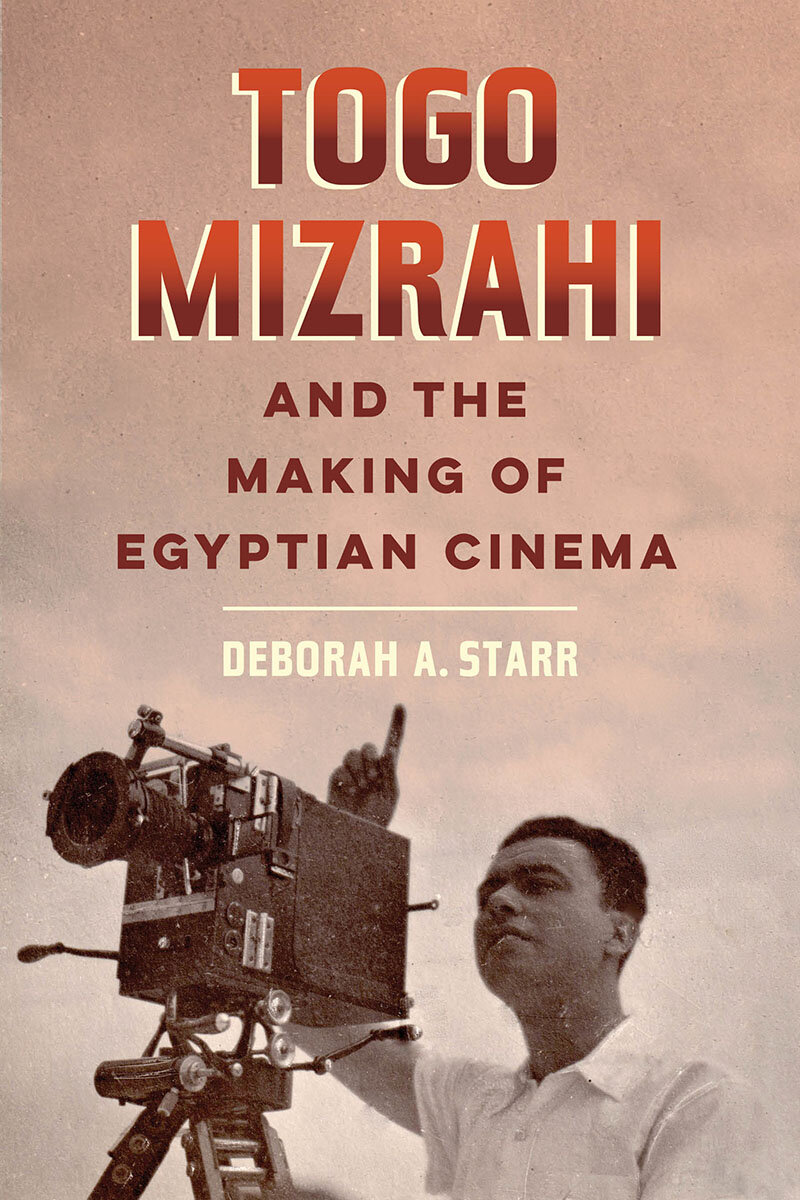
Another recent book may serve as a complementary volume to Muslim-Jewish Interactions. Focusing on only one artist working in one medium in one nation and written by one author with one overarching thesis, Deborah Starr’s Togo Mizrahi and the Making of Egyptian Cinema (UC Press 2020)is perhaps easier to grasp than Everett and Vince’s collection, though it also offers a complex and subtle analysis of a neglected and important figure—and suggests new ways of thinking about Muslim-Jewish interactions.
Taking us to the eastern edge of North Africa, outside the French sphere of political (though not cultural) influence, the book is a study of a Jewish Egyptian filmmaker whose work, Starr argues, contributed to the national (and nationalist) project of Egyptian cinema in the 1930s and early 1940s. Although Mizrahi’s numerous farces and musicals were extremely popular and highly regarded at the time (he was voted the “most accomplished filmmaker in Egypt” by the Association of Cinema Critics in 1942), he was marginalized after the 1952 revolution: his films were still shown, but until 1979 his name was removed from the credits and he was increasingly written out of Egyptian film history. Starr’s study is an effort to recuperate Mizrahi’s work, finding in it a “pluralist nationalism” that destabilizes identity politics—including gender, race, and religion.
Two of Mizrahi’s early films are especially striking to a reader of Jewish-Muslim Interactions, featuring as they do another Jewish-Muslim comic “couple,” Chalom and ‘Abdu, who have various adventures and misadventures together, including waking up in bed together and kissing each other on the mouth. Starr suggests that the character of Chalom, played by the Jewish actor Leon Angel, “boldly inserts lower-class, arabophone Egyptian-Jewish nativeness into the cultural imaginary.” The first Chalom and ‘Abdu film, Al-Manduban or “The Two Delegates,” in which the two lower-class men court middle-class women, concludes with a double wedding, where “the music plays in a continuous, unbroken stream over a montage of wedding images featuring both couples.” The second Chalom and ‘Abdu film, Al-‘Izz bahdala, “Mistreated by Affluence,” also ends with a double wedding that omits specifically Islamic or Jewish rituals. Instead, what we hear and see are music and dance. Starr calls attention to how Mizrahi’s technique “serves to blur distinctions between the Jewish and Muslim weddings,” underscoring the films’ “ethics of coexistence,” representing “deeply intertwined communities of Jews and Muslims coexisting as equals.”
An ethics of coexistence, a pluralistic aesthetic, and the performativity of identity are the three elements of what Starr identifies as Mizrahi’s “Levantine cinematic idiom,” and which she explores through detailed analyses of numerous films, including several that feature noted performers Layla Murad, Tahiya Carioca, and Umm Kulthum. Starr uses the term “Levantine” to suggest a “porous multiculturalism,” celebrated in the essays of Egyptian-Jewish writer Jacqueline Shohet Kahanoff, and perhaps made most familiar through Ammiel Alcalay’s groundbreaking 1993 study, After Jews and Arabs: Remaking Levantine Culture (though, inexplicably, Starr never references Alcalay). Alcalay had suggested that the qualities of “mobility, diversity, autonomy, and translatability” characterized the Jews of the Levant, and it would seem that those qualities too might be applied to the work of Togo Mizrahi. Such qualities, I suppose, also characterize Goha, my grandmother’s favorite—whose stories I now want to recover.
Humor and music, the two things that connected my grandmother with a past in which Jews and Muslims lived together, emerge from both of these studies as two significant media for reconnection, each what Jumana Manna calls a “magical substance,” linking us to one another and to our histories.
Further Reading
Neta Elkayam “Bridging Time, Distance and Distrust, With Music” | Aida Alami
Chris Silver “Obsessive 78s collector, preserves North African Jewish music” | Asaf Shalev
Midnight in Cairo Review: Queens of Jazz Age Egypt | Moira Hodgson
Levantine dreams: “The Global Films of Togo Mizrahi | Raphael Cormack



